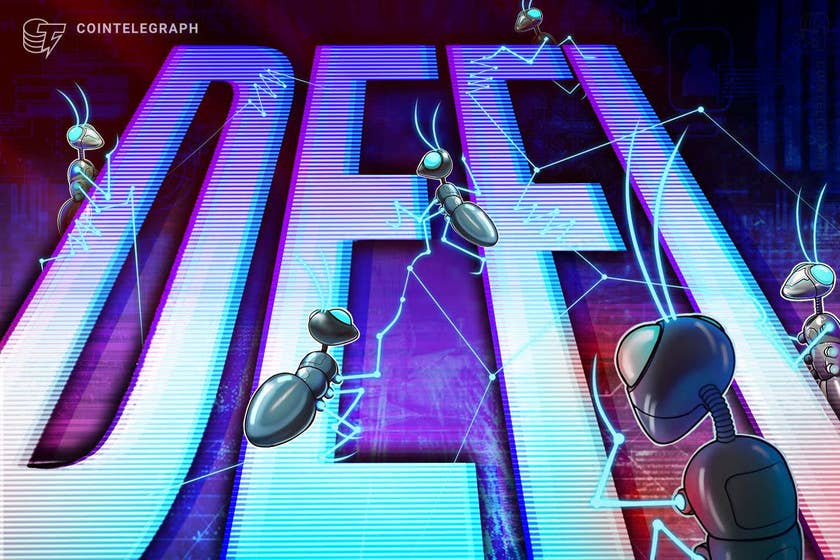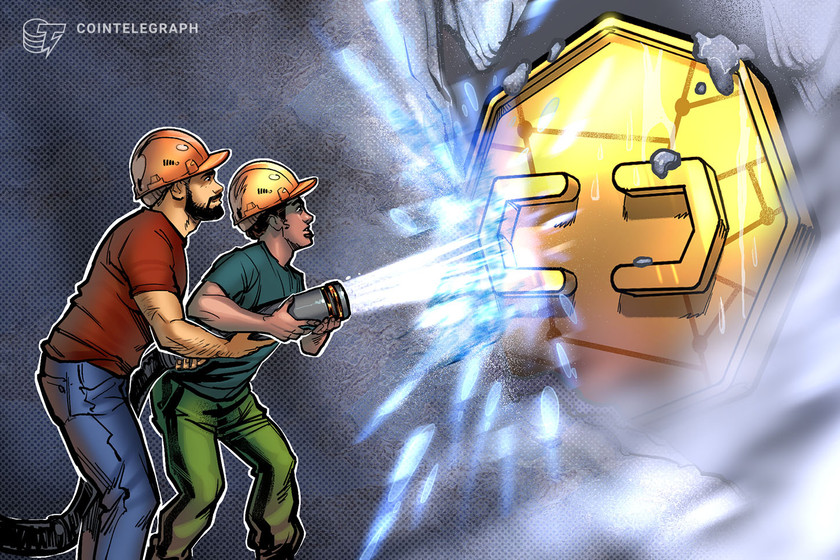Acting OCC head warns that ‘fools gold’ in DeFi reminds him of lead-up to GFC

While crypto has weathered past hacks, scams and crashes, acting OCC head Michael Hsu warns that the risks may be multiplying as the technology goes mainstream.
Acting head of the United States Office of the Comptroller of the Currency (OCC) Michael Hsu has warned that the exotic financial products developed in some quarters of crypto and DeFi are reminiscent of those that precipitated the 2008 Global Financial Crisis (GFC).
Speaking before the Blockchain Association on Sept. 21, Hsu warned that “innovation for innovation’s sake […] risks creating a mountain of fool’s good,” drawing analogies between the rapid proliferation of digital asset derivatives and the explosion in mortgage and debt derivatives, such as the Credit Default Swaps (CDS) that preceded the 2008 global financial crisis:
“I have seen one fool’s gold rush from up close in the lead up to the 2008 financial crisis. It feels like we may be on the cusp of another with cryptocurrencies (crypto) and decentralized finance (DeFi) […] Crypto/DeFi today is on a path that looks similar to CDS in the early 2000s.”
Hsu notes that “it was nearly impossible to hedge the risk of a borrower defaulting” prior to the creation of CDS in the mid-1990s. However, by the time he joined the SEC in 2004, the acting OCC head recounted that credit derivatives promised investors higher risk-adjusted returns using innovative products that “relied heavily on math and financial engineering.”
“They believed they were leading a financial revolution, creating an entirely different asset class, using an entirely different set of models. Sound familiar? Today, programmers and coders, instead of quants and financial engineers, are the core innovators.”
Hsu asserts that by the time the crisis unfolded, the original mission of CDS “to create an instrument that could improve risk management and thus lower the cost of credit” had been “turned onto itself, cloaked in impenetrable math and jargon, and supercharged with yield and fees to ensure growth.”
Drawing parallels between exotic DeFi derivatives and the systemic risk that underpinned the collapse of the U.S. housing market in 2008, Hsu noted that “most innovation seems focused on enhancing trading” in crypto now rather than realizing the vision for greater financial autonomy articulated by Satoshi Nakamoto in the Bitcoin Whitepaper.
Hsu cites several risks that could destabilize the crypto sector including “a run on a large stablecoin […] forks, hacks, rug pulls, vampire attacks, and flash loans.” While acknowledging that crypto has withstood all of the aforementioned incidents thus far, Hsu warns that such threats could loom larger as the cryptocurrency user base grows:
“My hypothesis is that until recently, most users have been hardcore believers in the technology and thus are both understanding of the risks and willing to forgive them. As the scope and reach of crypto/DeFi expands, though, more mainstream users, with regular expectations of safe and sound money, will dominate and drive reactions.”
Ultimately, Hsu’s outlook for crypto isn’t entirely bleak, with the official concluding that if the industry “applies the lessons from the 2008 crisis — anchor innovation in clear purpose, foster an environment for skeptics to speak up, and follow the money — the risks of fool’s gold can be mitigated and the real promise of blockchain innovation can be achieved.”
Related: Biden to nominate anti-crypto and anti-big bank law professor to run the OCC
However, the days of Hsu’s tenure as head of the OCC appear to be numbered, with the Biden administration reportedly moving to nominate law professor Saule Omarova to lead the institution.
If nominated, analysts believe Omarova will seek a tightening of regulations overseeing both the crypto and mainstream financial industries. Omarova previously described digital assets as a tool for private interests to abuse that are outside of the regulatory purview.







